Accelerate Productivity in 2025
Reignite Growth Despite the Global Slowdown
As the population grows and people grow more conscious about their living arrangements, there has been a rise in sustainable approaches towards building and managing real estate. As the real estate and construction sector is responsible for a substantial amount of global carbon emissions and resource consumption, the shift towards green real estate is necessary. Sustainability starts right at the construction stage where builders choose eco-friendly materials over traditional building materials. Further, it focuses on energy efficiency, waste reduction, water conservation, and the use of eco-friendly methods for operation and demolition.
These approaches benefit the environment and improve long-term financial performance by lowering operating costs, increasing property values, and meeting the growing demand for eco-conscious spaces among tenants and buyers. With innovations like green building certifications, smart technology, and regenerative designs, sustainability is ensuring the real estate industry aligns with the goals of a more resilient and low-carbon future.
Why should you read this report?
- Gain insights into the top 7 innovative approaches towards green real estate
- Learn about two practical use cases for each application
- Meet 7 innovative startups advancing these applications
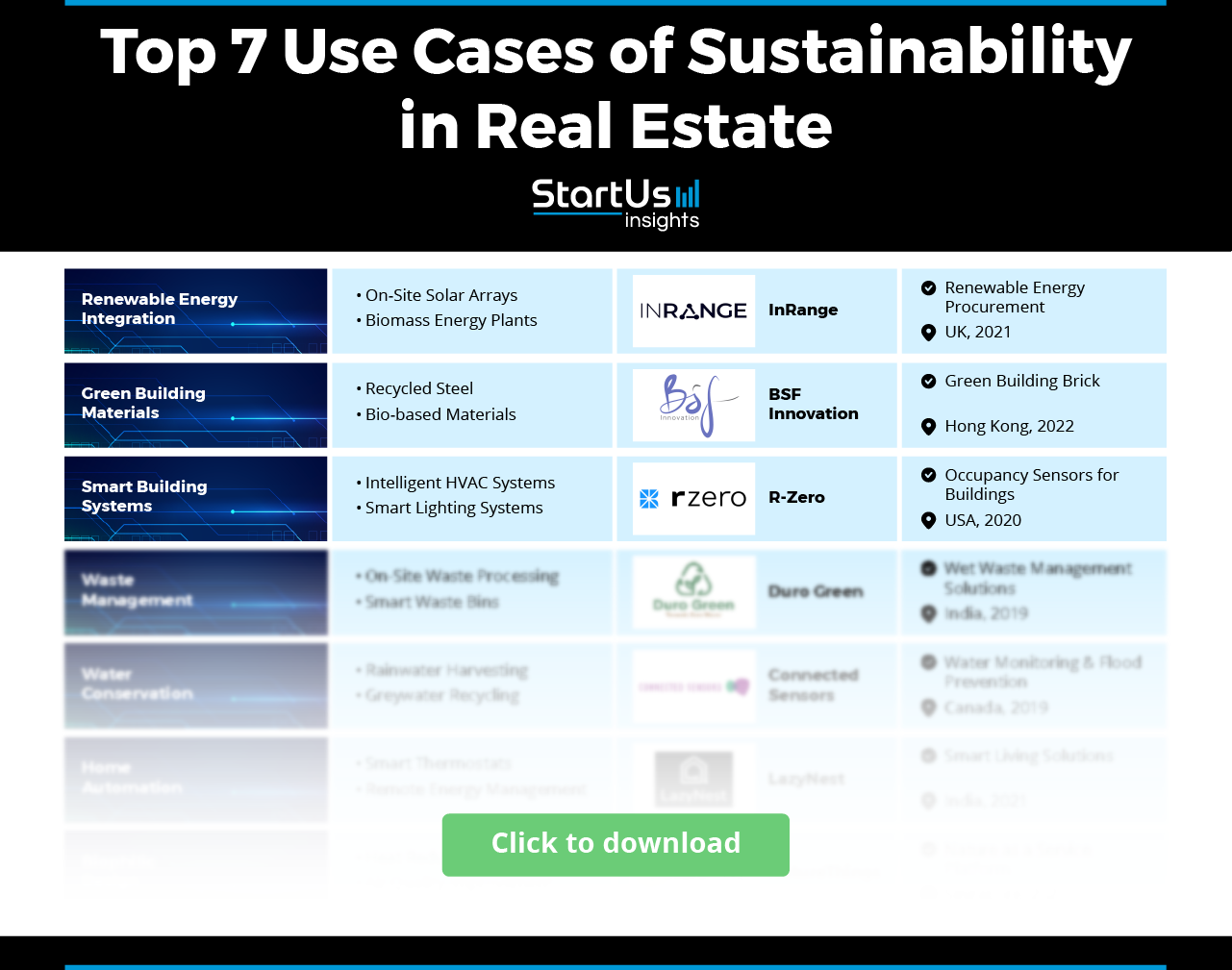
Key Takeaways
- Renewable Energy Integration
- Use Cases:
- On-Site Solar Arrays
- Biomass Energy Plants
- Startup to Watch: InRange
- Use Cases:
- Green Building Materials
- Use Cases:
- Recycled Steel
- Bio-based Materials
- Startup to Watch: BSF Innovation
- Use Cases:
- Smart Building Systems
- Use Cases:
- Intelligent HVAC Systems
- Smart Lighting Systems
- Startup to Watch: R-Zero
- Use Cases:
- Waste Management
- Use Cases:
- On-Site Waste Processing
- Smart Waste Bins
- Startup to Watch: Duro Green
- Use Cases:
- Water Conservation
- Use Cases:
- Rainwater Harvesting
- Greywater Recycling
- Startup to Watch: Connected Sensors
- Use Cases:
- Home Automation
- Use Cases:
- Smart Thermostats
- Remote Energy Management
- Startup to Watch: LazyNest
- Use Cases:
- Biophilic Design
- Use Cases:
- Heat Reduction
- Air Quality Improvement
- Startup to Watch: NatureThings
- Use Cases:
What You Need to Know About Sustainable Real Estate
1. What is ESG in real estate?
ESG in real estate refers to the principles of Environmental, Social, and Governance (ESG) that guide responsible and sustainable property management and investment. Environmental factors focus on minimizing carbon footprints, energy use, water consumption, and waste.
Social factors emphasize tenant well-being, community engagement, and inclusivity, ensuring properties meet diverse needs while fostering positive community impact. Governance ensures transparency, ethical decision-making, and accountability in management, which strengthens investor confidence and operational integrity. Together, ESG frameworks help real estate professionals create properties that align with evolving regulations, investor expectations, and societal values.
2. How can the real estate industry be made sustainable?
To make the real estate industry sustainable, developers and property managers must integrate energy-efficient technologies and materials into new and existing buildings. Solar panels, smart energy systems, and eco-friendly building materials reduce emissions and operating costs. Retrofitting older properties to meet green standards also extends building lifespans while lowering their environmental impact.
Additionally, implementing water-saving measures, recycling initiatives, and waste reduction programs within properties reduces resource use and supports environmental goals. Green building certifications provide frameworks and incentives to achieve sustainability benchmarks, aligning operations with long-term ecological goals.
Where We Get Our Data From
StartUs Insights gathers data through its exhaustive Discovery Platform, covering information on 4.7+ million startups, scaleups, and tech companies globally, alongside 20K+ emerging technologies and trends. The Discovery Platform accelerates startup and technology scouting, trend intelligence, and patent searches, offering thorough insights into technological advancements. By leveraging the trend intelligence feature for this report, we identified emerging technologies within specific industries. This process allows us to uncover patterns and trends, and pinpoint relevant use cases and the startups creating solutions for each scenario. Additional capabilities and information can be found at StartUs Insights Discovery Platform.
Top 7 Sustainable Applications in Real Estate [2025 & Beyond]
1. Renewable Energy Integration
Using renewable energy for activities like water heating and electricity production assists the real estate industry in reducing their carbon footprint. It also increases energy security and reduces energy costs. For instance, building management systems (BMS) optimize energy use by tracking energy consumption. Property owners use biomass boilers for heat and power generation to reduce reliance on fossil fuels. Similarly, properties with access to flowing water sources employ small-scale hydroelectric systems. Additionally, communities leverage small-scale wind turbines, on-site solar arrays, and other distributed energy resources (DER) to fulfill localized energy requirements.
Dive Deeper:
- Noteworthy Example: Apple‘s headquarters, Apple Park in Cupertino, California, is a prime example of renewable energy integration in commercial real estate. The building features extensive rooftop solar installations along with significant on-site renewable energy generation.
- Financial Landscape: The average funding for startups integrating renewable energy in real estate is USD 43.3 million.
Startup to Watch: InRange
UK-based startup InRange offers an AI-powered platform that streamlines and speeds up the renewable energy procurement process. It transforms a built environment into a clean energy network. The platform’s automated analysis provides a portfolio-wide view of the asset. The stakeholders then align on the pre-approved contracts, which reduces the cost per kWp. The platform ensures intelligent energy management with advanced forecasting and analytics-powered energy distribution. This balances the supply and demand across the network and ensures optimal energy utilization. It additionally provides automated analysis, simplifies deals, aligns stakeholders, and improves energy networks. The platform is suitable for landlords, tenants, data centers, and EPC contractors.
2. Green Building Material
In addition to ensuring sustainability, green building materials ensure better insulation and improved thermal performance. They also reduce dependency on highly processed materials. Property owners use materials like rammed earth, made from local soil and grasscrete, and grasscrete to replace the traditional building materials. These materials combine concrete with vegetation to improve drainage and reduce runoff.
Green building materials also play a huge role in reducing carbon footprint. For example, bio-based materials like hempcrete absorb CO2 over their lifetime. Materials like recycled steel decrease the carbon footprint of buildings as they have lower embodied energy. The real estate industry also uses precast concrete, which offers precise measurements along with reabsorbing some embodied carbon over time. Further low-VOC paints reduce indoor air pollution as it uses less volatile organic compounds.
Dive Deeper:
- Noteworthy Example: Signature Global, an Indian real estate developer is promoting green buildings in India, particularly in Gurgaon. They emphasize the use of sustainable construction techniques and materials in their projects. Their approach includes utilizing energy-efficient designs, incorporating renewable energy sources, and using sustainable building materials.
- Financial Landscape: The average funding of startups building green materials for the real estate industry is USD 3.1 million.
Startup to Watch: BSF Innovation
Hong Kong-based startup BSF Innovation provides green construction material waste2build. The company combines traditional building materials with food waste fiber and black soldier flies (BSF). As a result, the building materials retain strength and quality, while reducing formaldehyde (HCHO). The process consists of insect farming specialists and carbon auditors dividing the process into three sections.
The food waste goes through extraction methodologies to estimate the suitability of the fiber contents. Then, the insect farmers formulate the BSF ecosystem for the target food waste to be fed and consumed by BSF to the pupal stage and create the required materials. Lastly, the engineers finalize the precise content ratio and forward the sample for further testing. The company further quantifies the CO2 result and offers ESG-related reports.
3. Smart Building System
IoT combined with machine learning, AI, and data analytics form the basis of smart buildings. This combination automates adjustments based on conditions or preferences and provides predictive maintenance to avoid disruptive breakdowns. The sensors used in smart buildings further optimize energy efficiency by managing occupancy levels, temperature, humidity, light levels, air quality, and more.
Smart HVAC systems are integrated with AI and machine learning, which assists them in predicting and proactively managing building performances. The HVAC systems are also integrated with weather forecast systems to optimize temperature control and occupancy sensors to adjust heating and cooling based on space usage. Additionally, the real estate industry uses smart plug controllers. These plug controllers ensure sustainability by monitoring the energy usage of individual devices, cutting power to devices running unnecessarily, and detecting secondary connected devices.
Dive Deeper:
- Noteworthy Example: Empire State Realty Trust has implemented a program to reduce energy consumption and improve sustainability in tenant spaces. Their approach includes designing and building spaces for lower energy consumption, monitoring and verifying energy usage, and engaging with tenants to aid in their energy reduction targets.
- Financial Landscape: The average funding for real estate startups working in smart building systems is USD 8.6 million.
Startup to Watch: R-Zero
US-based startup R-Zero builds a workplace intelligence platform for commercial real estate. The platform provides utilization targets for energy and improves efficiency. The company uses privacy-first sensors to collect data about active and passive occupancy, space utilization, and workplace experience support. It further uses energy-efficient HVAC air filters and UV disinfectors to maintain indoor air quality and health, energy, and sustainability. These data support space planning decisions and healthy building certificates like LEED, WELL, and Fitwel. The platform collects all this data, which assists corporate real estate owners, operators, and their tenants to ensure efficient facility and property management. Further, it ensures worker experience and sustainability.
4. Waste Management
The real estate industry uses methods like smart waste management and on-site waste processing to improve waste management systems. Smart waste management entails smart compactors that track and record waste volume from different sources. It also comes with intuitive dashboards that use AI and data analytics to predict waste generation and optimize disposal. Further, the wastes are also separated and recycled using color-coded bins. These wastes are recycled using composters, aerobic bio-digesters, larvae injection, etc. Additionally, the implementation of green leases compels real estate properties to adapt to waste management initiatives, and the application of waste hierarchy prioritizes waste prevention, reuse, recycling, and energy recovery.
Dive Deeper:
- Noteworthy Example: Keter Environmental Services is a prominent waste managed services provider focused on helping real estate investment trusts (REITs) implement sustainable waste practices. Their approach includes collaborating with tenants to implement composting programs, promoting sustainable packaging choices, optimizing food inventory management to reduce waste at the source and more.
- Financial Landscape: The average funding for startups working in real estate waste management is USD 27.1 million.
Startup to Watch: Duro Green
Indian startup Duro Green provides wet waste management solutions to commercial and industrial establishments. The solution consists of batch and automatic models, both of which process organic waste to produce nutrition-rich compost. The compost is suitable for gardening and agriculture. The batch composting machine handles small quantities of waste in a controlled environment and has low maintenance requirements.
The models are customizable with additional chambers for increased per-hour capacity. The automatic composting machines handle larger-scale waste management operations with minimal human interventions. Both machines are made of high-quality stainless steel and have safety features to ensure reliable operations. They also feature control panels and interfaces for handling, and energy-efficient motors for reduced energy consumption.
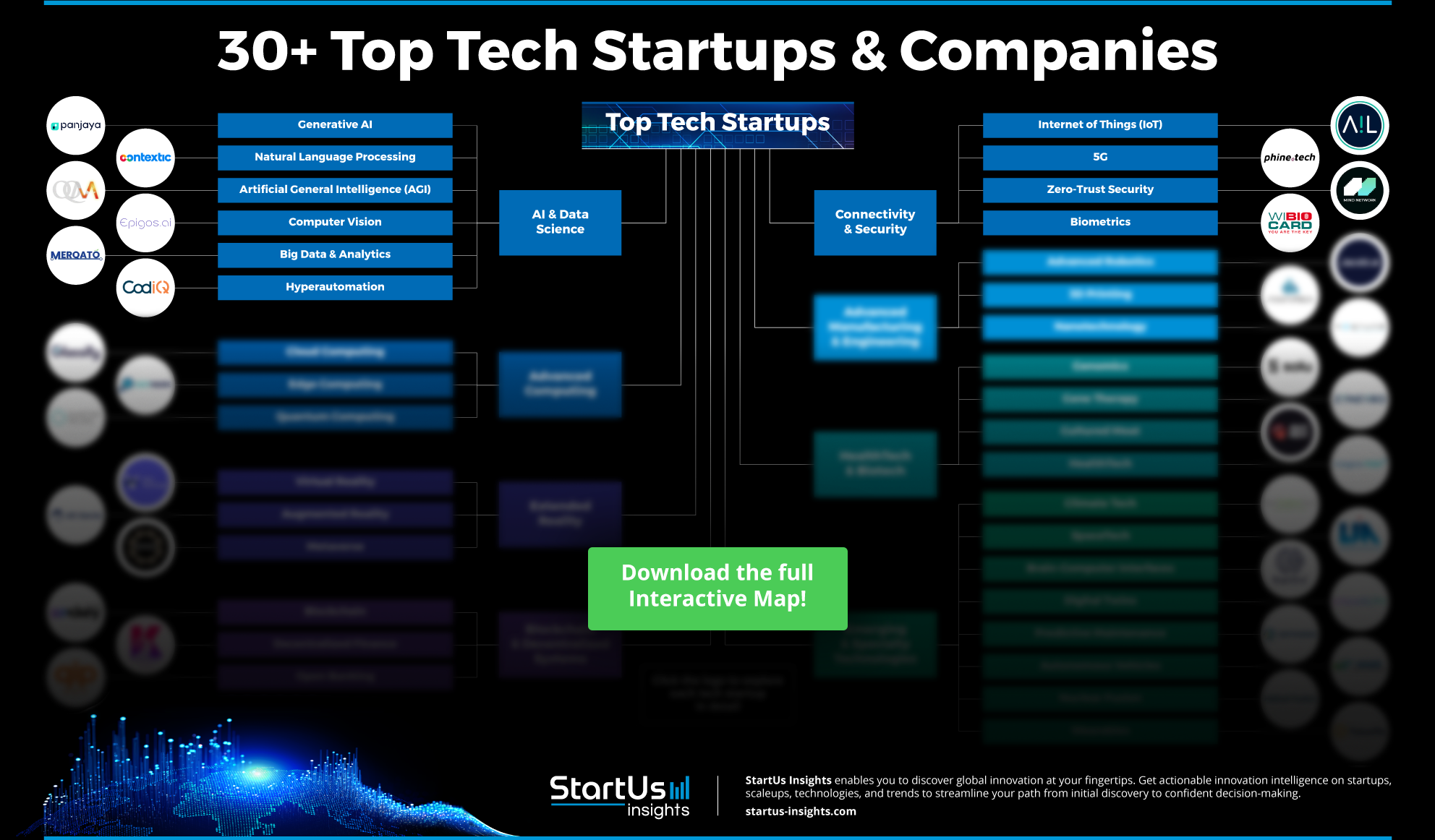
5. Water Conservation
Real estate properties with a garden or a considerable amount of green landscape use recycled water for irrigation. They also use a smart irrigation system, which uses weather data and soil moisture sensors to optimize water use. Further, the plumbing fixtures in the buildings are built using low-flow fixtures, which include low-flow faucets, showerheads, toilets, etc. These fixtures reduce water consumption in daily activities.
Methods like rainwater harvesting and greywater recycling capture rainwater and wastewater respectively. This captured water is then treated and used for various purposes. The real estate industry is focusing on building sustainable landscapes which include plants that require less water and permeable paving which recharges groundwater. They are also installing leak detection systems across assets to reduce the amount of water lost due to inattentiveness towards maintenance.
Dive Deeper:
- Noteworthy Example: Mahindra Lifespaces has made significant strides in water conservation. They significantly reduced water usage in residential areas and Integrated cities & industrial clusters. They classify their sites based on water stress into safe, critical, and over-exploited, allowing for customized mitigation measures.
- Financial Landscape: The average funding of real estate startups developing water conservation systems is USD 8.3 million.
Startup to Watch: Connected Sensors
Canadian startup Connected Sensors builds smart water management solutions, which provide non-intrusive water consumption monitoring and leak detection. The solution includes a professional commercial water audit, which explores the building’s water systems and provides exclusive insights into the performance and scope of improvement. The other product is the Water Monkey, a 24/7 smart water flow meter that provides information about water flow rates. The flow rates are analyzed using AI and machine learning.
Additionally, Odeus, a point-of-use smart leak detector, identifies leaks right at the source. The flood detection solution consists of Water Sniffer, which is a live flood detector. It also consists of IIoT controller MOXA AIG-101 for main distribution shut-off, which uses predefined algorithms to mitigate risks. Additionally, the Mini Water Stopper is used for the in-suite shut-off valve. The solutions are suitable for property managers and landlords.
6. Home Automation
Home automation technologies consist of smart building management systems that integrate AI, IoT sensors, and data analytics. These systems optimize energy management through smart thermostats, lighting controls, integration of renewable energy sources, water conservation technologies, automated waste management, and predictive maintenance capabilities. Occupancy-based controls, smart metering, and real-time monitoring provide data-driven insights for continuous improvement.
The use of building information modeling (BIM), and the integration of electric vehicle charging infrastructure further contribute to the industry’s sustainability efforts. By implementing these technologies, real estate developers and property managers reduce environmental impact, lower operational costs, improve occupant comfort, and increase property values.
Dive Deeper:
- Noteworthy Example: Samsung has been at the forefront of sustainable home automation with its SmartThings platform. They recently partnered with Tesla to integrate SmartThings Energy with Tesla’s Powerwall, solar inverters, and electric vehicles. This integration allows users to monitor and manage their home’s energy production, storage, and usage through a single app
- Financial Landscape: The average funding of real estate startups developing home automation systems is USD 13.5 million.
Startup to Watch: LazyNest
LazyNest by Indian startup Dalnex provides automation solutions that can be controlled using the LazyNest mobile app or Alexa/Google Home voice commands. The solution comprises smart retrofitting switches, lighting solutions, smart energy meters, smart sensors, universal IR remotes, and more. The Lazynest app provides universal control over all appliances at home and can be used as a set-top box remote as well. Additionally, the app also allows automating the schedule setting of appliances, customized settings for different occasions, security settings, smart indoor monitoring, etc. Home, office, and hotel owners also use this app for detailed power statistics.
7. Biophilic Design
Biophilic designs entail the inclusion of natural elements within the building design. For example, living walls that improve air quality and vertical gardens that use smart irrigation, support biophilic inclusion. It makes the interior healthy and the entire building system sustainable. Such designs are also used to control the light and ventilation inside the building.
For example, tint-based smart windows adjust the amount of lighting entering the building. It also includes implementing solar panels for energy efficiency, rainwater harvesting for water conservation, and waste recycling for sustainable waste management, within the building structure. Real estate businesses are further focusing on incorporating wood, stone, and other biometric materials that mimic the natural structures in the design. This reduces dependence on traditional building materials.
Dive Deeper:
- Noteworthy Example: Apple’s new campus is widely regarded as one of the leading examples of biophilic design. The doughnut-shaped structure copies the natural curves found in nature and brings light into the offices from every angle. A new, 9,000-tree woodland also surrounds the campus.
- Financial Landscape: The average funding of real estate startups developing biophilic designs is USD 1.5 million.
Startup to Watch: Nature Things
Singapore-based startup NatureThings builds an AI and IoT-enabled nature-as-a-service platform. The modular plug-and-play platform uses space design, plant science, and proprietary AI models to transform assets. The proprietary digital twin technology combines data from the platform, on-site sensors, and external datasets to feed into the AI model that generates, estimates, and optimizes the setup on-site. The platform additionally takes care of analyzing site profiles, customizing design, and deploying fulfillment. It also monitors maintenance and shared insights, and optimizes alerts and smart tasks.
Leverage Emerging Healthcare Technologies
The green real estate sector experiences strong investment, especially in seed, early-stage VC/Series A, pre-seed, angel, and grants, with an average funding round reaching USD 17.6 million. Major investors, including Techstars, EIT Urban Mobility, MassChallenge, Alumni Ventures, and Antler prioritize funding for startups developing sustainable real estate solutions. These investments fuel early innovation, driving industry-wide adoption.
Act now on the emerging technologies transforming the healthcare industry. With StartUs Insights, you swiftly discover hidden gems among over 4.7 million startups, scaleups, and tech companies, supported by 20K+ trends and technologies. Our AI-powered search and real-time database ensure exclusive access to innovative solutions, making the global innovation landscape easy to navigate.
Trusted by industry leaders like Samsung, Nestlé, and Magna, we provide unmatched data, a 360-degree industry view, and data-driven intelligence for confident strategic decisions. Leverage our innovation services to optimize costs, streamline operations, and stay ahead of the curve. Get in touch today to explore how our comprehensive innovation intelligence can drive your success.
Discover All Sustainable Real State Technologies & Startups!
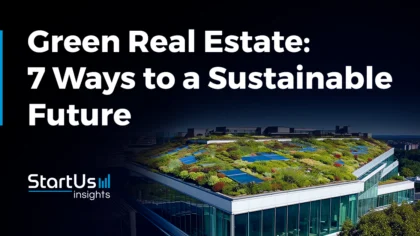
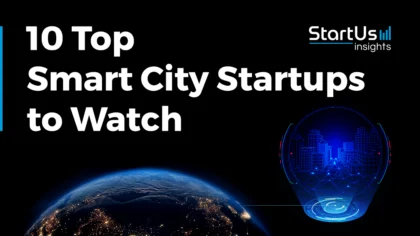
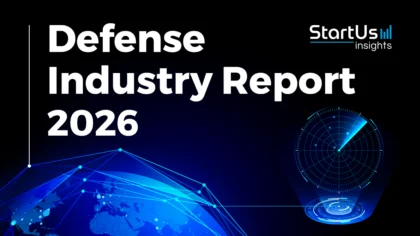
![Dive into the Top 10 Workplace Safety Trends & Innovations [2026]](https://www.startus-insights.com/wp-content/uploads/2025/07/Workplace-Safety-Trends-SharedImg-StartUs-Insights-noresize-updated-420x236.webp)



